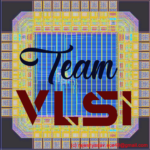If you want to enhance your understanding and grow in any field, books can be your best buddy. Reading good books is a proven way to enhance understanding and develop depth knowledge of any domain. So I would like to say, the semiconductor industry is not an exception to this trend. If you want to develop your deep understanding, the working experience and learnings are not sufficient, you must have to develop the habit of reading too.
The semiconductor industry is a very fast-moving industry in terms of technology development. We are witness of many such developments in recent years like many lower nodes, multiple patterning, DUV to EUV and many more. Many of the basic concepts you need to read and understand from books, many can be read from recent journals/conference publication and articles. There are many good books in this area which are quite popular in the semiconductor professional and researcher community. In this article, I would like to recommend the top 5 books which every Physical design engineer must-read.
1. “Static Timing Analysis for Nanometer Designs” by J. Bhashkar and Rakesh Chadha
CHAPTER 1: Introduction
CHAPTER 2: STA Concepts
CHAPTER 3: Standard Cell Library
CHAPTER 4: Interconnect Parasitics
CHAPTER 5: Delay Calculation
CHAPTER 6: Crosstalk and Noise
CHAPTER 7: Configuring the STA Environment
CHAPTER 8: Timing Verification
CHAPTER 9: Interface Analysis
2. “Physical Design Essentials: An ASIC Design Implementation Perspective” by Khoshrow Golshan
Chapter 1: Libraries
1.1 Standard Cells 1.4 Library Characterization
Chapter 2: Floorplanning
2.1 Technology File 2.3 Design Constraints
2.4 Design Planning
2.5 Pad Placement
2.6 Power Planning
2.7 Macro Placement
Chapter 3: Placement
3.1 Global Placement 3.2 Detail Placement
3.3 Clock Tree Synthesis
3.4 Power Analysis
Chapter 4: Routing
4.1 Special Routing
4.2 Global Routing
4.3 Detail Routing
4.4 Extraction
Chapter 5: Verification
5.1 Functional Verification 5.2 Timing Verification
5.3 Physical Verification
Chapter 6: Testing
6.1 Functional Test6.2 Scan Test 6.3 Boundary Scan Test6.4 Fault Detection6.5 Parametric Test6.8 Memory Test
3. “CMOS Digital Integrated Circuits Analysis and Design” by Sung-Mo Kang and Yusuf Leblebici
This book is the most favourite book in the academics. The book starts with the basic of MOS Transistors, Scaling, Modeling of MOSFET, CMOS Inverter characteristics, combinational and Sequential logic, SRAM design then Low power CMOS logic circuits. The contents of this book are as follow:
1 INTRODUCTION 2 FABRICATION OF MOSFETs3 MOS TRANSISTOR
4 MODELING OF MOS TRANSISTORS USING SPICE
5 MOS INVERTERS: STATIC CHARACTERISTICS
7 COMBINATIONAL MOS LOGIC CIRCUITS 8 SEQUENTIAL MOS LOGIC CIRCUITS
9 DYNAMIC LOGIC CIRCUITS
10 SEMICONDUCTOR MEMORIES
11 LOW-POWER CMOS LOGIC CIRCUITS
12 BiCMOS LOGIC CIRCUITS
13 CHIP INPUT AND OUTPUT (O) CIRCUITS
14 VLSI DESIGN METHODOLOGIES
15 DESIGN FOR MANUFACTURABILITY
16 DESIGN FOR TESTABILITY
4. “The MOS Transistor” by Yanish Tsiwidis
This book is one the standard book on MOS transistors in Academics as well as industry. My personal feeling in that the writer Yanish Tswidis is the God of MOS Transistors.
The first image is shown is the Indian 3rd edition and I would like to recommend you if you have not read this book till now, you must read this. You can buy this book from the following link.
A course on this book is also available on the Coursera website.
5. “Verilog HDL A Guide to Digital Design and Synthesis” by Samir Palnitkar
2 Hierarchical Modeling Concepts
3 Basic Concepts
4 Modules and Ports
5 Gate-Level Modeling
6 Dataflow Modeling
7 Behavioral Modeling
8 Tasks and Functions
9 Useful Modeling Techniques
10 Timing and Delays
11 Switch-Level Modeling
12 User-Defined Primitives
13 Programming Language Interface
14 Logic Synthesis with Verilog HDL
This was a very short list of books, actually, my favourite list is quite long. You might feel that I have missed some important books. Yes, that’s right and I will cover all those in another article. You can comment on the name of your most favourite book.
